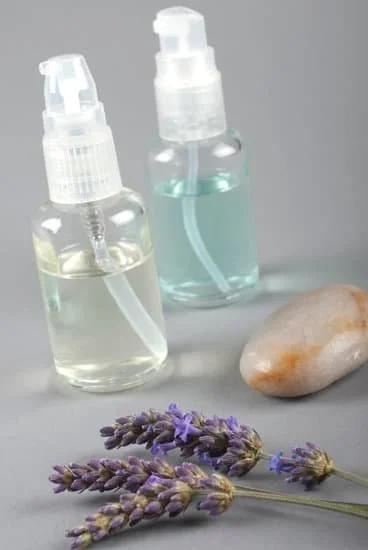Are aromatherapy sprays safe for pets? Many pet owners are turning to aromatherapy as a natural way to support their pets’ well-being. Aromatherapy involves using natural plant extracts, known as essential oils, to promote physical and mental health. In this article, we will explore the use of aromatherapy sprays on pets, including the potential benefits, risks, and safe practices.
Aromatherapy has been gaining popularity in the pet care industry as an alternative or complementary therapy to promote relaxation, relieve anxiety, and support overall health in pets. Aromatherapy sprays are one of the most convenient ways to deliver essential oils to pets, but it is important to understand the potential risks and benefits associated with their use.
In this comprehensive guide, we will dive into the world of aromatherapy for pets, including how these sprays work and their ingredients. We will also discuss the potential benefits of using aromatherapy for pets and address any concerns related to their safety. Additionally, we will provide tips on how to safely use aromatherapy sprays around pets and identify essential oils that are safe for them.
Understanding Aromatherapy Sprays and Their Ingredients
Aromatherapy sprays have gained popularity among pet owners as a way to provide a calming and soothing environment for their furry friends. These sprays typically contain a blend of essential oils and other natural ingredients that are believed to have therapeutic benefits for pets. Understanding the ingredients in these sprays is crucial for ensuring the safety and well-being of your pets.
Aromatherapy sprays often contain a combination of essential oils such as lavender, chamomile, and bergamot, among others. These oils are known for their relaxing and stress-relieving properties, making them popular choices for use in aromatherapy products for both humans and pets. It’s important to note that not all essential oils are safe for pets, and some can be toxic if ingested or absorbed through the skin.
In addition to essential oils, aromatherapy sprays may also contain other natural ingredients such as water, alcohol, or floral waters. It’s important to carefully review the ingredient list before using any aromatherapy spray on your pet to ensure that it does not contain any harmful substances. Understanding the specific ingredients in these sprays can help you make an informed decision about whether they are safe for use around your pets.
Potential Benefits of Aromatherapy for Pets
Aromatherapy has been shown to provide various potential benefits for pets, just as it does for humans. When it comes to pets, the use of aromatherapy sprays can help promote relaxation and reduce anxiety in stressful situations. This is particularly beneficial for pets who may experience separation anxiety, fear of thunderstorms, or have difficulty adjusting to new environments.
Some potential benefits of aromatherapy for pets include:
- Reduction of stress and anxiety
- Improvement in sleep quality
- Relief from discomfort or pain
- Support for overall emotional well-being
It’s important to note that the effectiveness of aromatherapy for pets may vary depending on the individual animal and their specific needs. Some pets may respond more positively to aromatherapy sprays than others, so it’s essential to monitor their reactions closely.
In addition to these potential benefits, aromatherapy sprays can also be used to create a calming environment for pets during grooming sessions or vet visits. By using specific essential oils known for their soothing properties, pet owners can help alleviate their furry companions’ apprehension about these experiences.
Risks and Concerns of Using Aromatherapy Sprays on Pets
Aromatherapy sprays have become increasingly popular for pets as a natural way to address various health and behavioral issues. However, it is essential for pet owners to understand the potential risks and concerns associated with using these products on their furry friends.
When it comes to aromatherapy sprays for pets, there are a few key considerations to keep in mind:
- Sensitivity: Pets, especially cats, can be more sensitive to essential oils compared to humans. Some essential oils can cause allergic reactions or skin irritation when applied directly or through inhalation.
- Ingestion: There is always a risk of pets ingesting aromatherapy sprays either by licking the sprayed area or grooming themselves. Certain essential oils can be toxic to pets if ingested in large quantities.
- Respiratory Issues: The inhalation of certain essential oil particles may lead to respiratory problems in pets, particularly those with pre-existing conditions such as asthma or bronchitis.
Additionally, it is important to consider the overall health and age of the pet before using aromatherapy sprays. Pets with underlying health conditions or those who are very young or elderly may be more susceptible to adverse effects from essential oils. As a result, it is crucial for pet owners to proceed with caution and consult with a veterinarian before using any aromatherapy products on their pets.
Safe Essential Oils for Pets
When it comes to using aromatherapy sprays around pets, it is crucial to be mindful of the essential oils being used. Some essential oils can be toxic to pets if ingested or inhaled, so it is important to choose safe options when incorporating aromatherapy into your pet’s environment.
Some of the safest essential oils for pets include lavender, chamomile, and frankincense. These oils have calming properties that can help reduce stress and anxiety in pets. Additionally, they have been found to be safe for use around both cats and dogs when used in moderation and with proper dilution.
It is important to note that not all essential oils are safe for pets. Oils such as tea tree, citrus, cinnamon, and peppermint can be harmful to pets and should be avoided when using aromatherapy sprays around them. Always check with a veterinarian before introducing any new essential oil into your pet’s environment to ensure their safety.
| Safe Essential Oils | Pets |
|---|---|
| Lavender | Cats and Dogs |
| Chamomile | Cats and Dogs |
| Frankincense | Cats and Dogs |
How to Safely Use Aromatherapy Sprays Around Pets
Aromatherapy is becoming increasingly popular as a holistic approach to improving the well-being of pets. Aromatherapy sprays, in particular, are considered an easy and convenient way to introduce calming or therapeutic scents into a pet’s environment. However, it is important for pet owners to understand how to safely use these products around their furry companions.
Understanding Proper Dilution
When using aromatherapy sprays around pets, it is crucial to follow proper dilution guidelines. Essential oils are highly concentrated and can be harmful to pets if used at full strength. Always dilute essential oils with water or a carrier oil before creating an aromatherapy spray intended for use around pets.
Consider Pet Sensitivities
Just like humans, pets can have varying sensitivities to different scents and essential oils. Before using an aromatherapy spray on or around your pet, observe their reactions to different scents by offering the scent in a less concentrated form. Look for signs of distress such as sneezing, scratching, or avoiding the area where the spray was used.
Avoid Direct Application
When using aromatherapy sprays around pets, it’s best to avoid direct application onto their fur or skin. Instead, lightly mist the air in the room or on bedding surfaces where your pet likes to rest. This helps ensure that they have the option to move away from the scent if they find it overwhelming.
By following these guidelines and being mindful of your pet’s individual needs and sensitivities, you can safely incorporate aromatherapy sprays into your pet care routine without causing harm or discomfort.
Tips for Choosing the Right Aromatherapy Sprays for Pets
When it comes to choosing the right aromatherapy sprays for pets, there are certain factors that pet owners should consider in order to ensure the safety and well-being of their furry friends. Here are some tips for selecting the best aromatherapy sprays for pets:
Consult With a Veterinarian
Before introducing any new aromatherapy spray to your pet, it is important to consult with a veterinarian. Not all essential oils are safe for pets, and some may even be toxic. A veterinarian can provide guidance on which essential oils are safe for use around pets and which ones to avoid.
Choose High-Quality, Natural Ingredients
When selecting an aromatherapy spray for your pet, opt for products that contain high-quality, natural ingredients. Look for sprays that are made with pure essential oils and do not contain any artificial fragrances or additives. It’s also important to choose a product that is specifically formulated for use around animals.
Consider Your Pet’s Sensitivities
Just like humans, pets can have sensitivities and allergies to certain scents and ingredients. Take into consideration your pet’s individual sensitivities when choosing an aromatherapy spray. If your pet has a history of skin or respiratory issues, it’s best to choose a mild, hypoallergenic spray that is less likely to cause any adverse reactions.
By following these tips and being mindful of your pet’s specific needs and sensitivities, you can safely incorporate aromatherapy sprays into your pet’s routine for potential health benefits without causing harm or discomfort. Always monitor your pet’s behavior and well-being after using any new product, and discontinue use if you notice any negative reactions.
Case Studies
Many pet owners have reported positive experiences with using aromatherapy sprays on their pets. One case study involved a dog who experienced anxiety during thunderstorms. The owner used a lavender aromatherapy spray in the room where the dog was staying, and the calming effects of the lavender helped to reduce the dog’s anxiety.
Another case study involved a cat experiencing digestive issues. The owner used a peppermint aromatherapy spray in the cat’s living space, which seemed to help ease the cat’s discomfort.
It is important to note that these case studies are anecdotal and do not guarantee results for all pets. However, they do provide insight into how some pets may positively respond to aromatherapy sprays. These examples highlight the potential benefits of using essential oils in a safe and controlled manner for pets.
While there are success stories, it is crucial for pet owners to approach aromatherapy sprays with caution. Not all pets will react positively to essential oils, and some may even experience adverse effects. Understanding individual pet sensitivities and consulting with a veterinarian before introducing aromatherapy sprays is essential to ensure the safety and well-being of pets.
| Case Study | Outcome |
|---|---|
| Dog with anxiety | Reduced anxiety during thunderstorms after using lavender spray |
| Cat with digestive issues | Eased discomfort after using peppermint spray |
Conclusion
In conclusion, aromatherapy sprays can be safe for pets when used properly and with caution. While there are potential benefits to using aromatherapy for pets, it is important to understand the risks and concerns associated with certain essential oils and ingredients commonly found in these sprays. It is crucial for pet owners to educate themselves on safe essential oils for pets and to use aromatherapy sprays responsibly.
When selecting aromatherapy sprays for pets, it is important to choose products that are specifically formulated for animals and that do not contain any harmful or toxic ingredients. Additionally, consulting with a veterinarian before using any aromatherapy sprays on pets is highly recommended. Following proper guidelines and understanding how to safely use these products around pets is key in ensuring their well-being.
Ultimately, while there are case studies of positive experiences with using aromatherapy sprays on pets, it is essential to approach these products with caution and always prioritize the safety and health of our furry companions. By being informed and educated about the use of aromatherapy sprays for pets, pet owners can make responsible decisions that benefit their beloved animals while minimizing potential risks.
Frequently Asked Questions
What Scents Are Not Safe for Pets in a Diffuser?
Some scents that are not safe for pets in a diffuser include essential oils like tea tree, citrus, cinnamon, eucalyptus, and wintergreen. These oils can be toxic to pets and cause symptoms like drooling, vomiting, tremors, or difficulty breathing.
It’s important to be cautious with diffusing any strong scents around pets and always consult with a veterinarian before using any new products in the home.
Is Lavender Spray Safe for Pets?
Lavender spray can be safe for pets if used properly and in moderation. Lavender is often considered one of the safer essential oils for use around pets, but it’s still important to dilute it properly and observe how your pet reacts to it.
Some pets may still have sensitivities or allergies to lavender, so it’s best to start with a small amount and monitor their behavior closely.
Is Peppermint Oil Spray Safe for Pets?
Peppermint oil spray should be used with caution around pets as it can be toxic to them in large amounts. While some pet owners use diluted peppermint oil as a natural flea repellent or for aromatherapy purposes, it’s important to remember that even small amounts of undiluted oil can cause adverse reactions in pets.
Always consult with a veterinarian before using peppermint oil spray around your pets to ensure their safety.

Are you looking for a natural way to improve your health and wellbeing?
If so, aromatherapy may be the answer for you.





